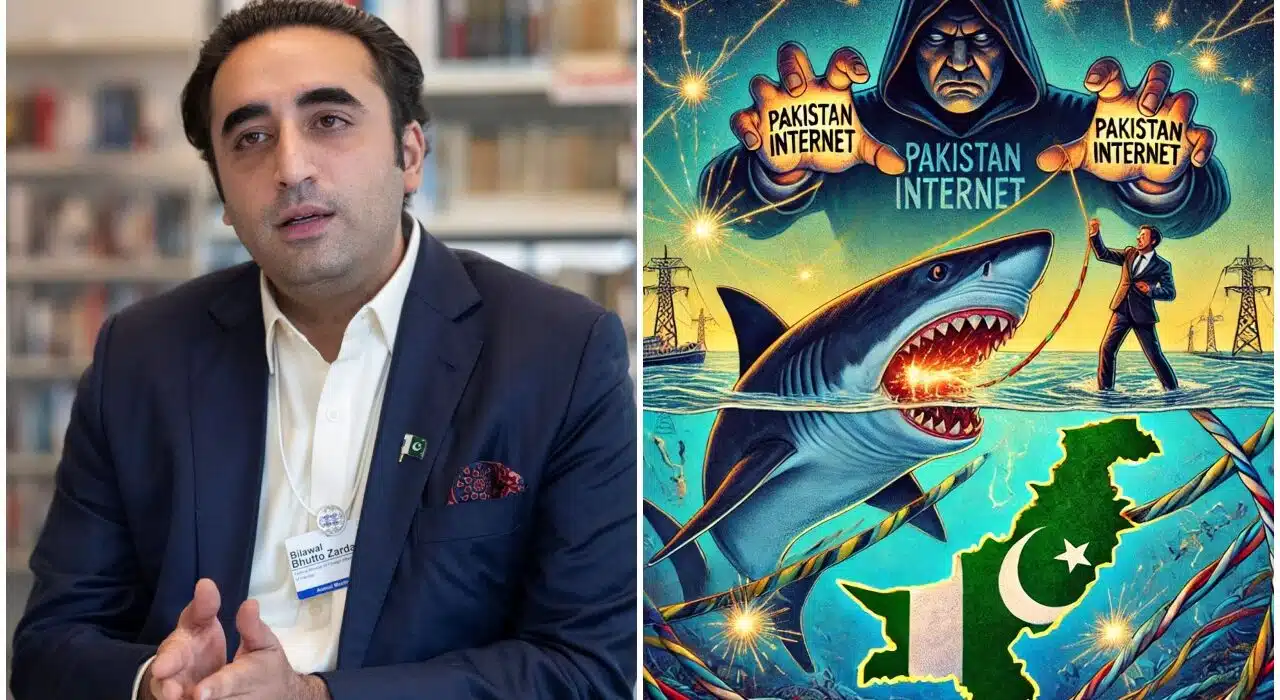Adding to the controversy, Pakistan Peoples Party (PPP) Chairman Bilawal Bhutto Zardari gave a sharp reaction to the PML-N-led government over not addressing the internet issue. While talking to journalists in Ratodero, he said, “PML-N’s politics may focus on motorways, but our generation’s infrastructure is digitalization and internet speed.” Taking a jibe at poor internet across Pakistan, he hilariously questions Why that fish only cuts Pakistan’s internet cables. Notably, whenever the internet is disrupted, social media posts start flooding about a shark or a whale fish damaging internet cables.
Since February 2024, the general elections have plunged Pakistan into the frustration of widespread internet disruption. It is reported that Pakistan authorities exercised their restrictions, including a ban on X (formerly Twitter) after reports suggested PTI was gaining favor with live updates from the polls.
Bilawal criticized the government’s narrative on the disruptions, laughing at claims that undersea cables had been severed. “Why that fish only cuts Pakistan’s internet cables?” he asked, hinting at inconsistencies in official explanations.
Have Pakistan’s internet cables been eaten by sharks for more than a year?
Users in major cities are complaining of erratic internet connections and slow speeds which are preventing them from being able to browse, download, or share media. Based on the Ookla Speedtest Global Index, Pakistan is at 100 among 111 countries when it comes to mobile internet speeds, with average download and upload speeds that stand at 20.61 Mbps and 8.53 Mbps, respectively. In fixed broadband, the country remains at 141 out of 158 nations, with a mean download speed of 15.60 Mbps.
Bilawal urged the government to focus on internet improvement rather than curbing access. “The government should be increasing internet speeds, not throttling them,” he said, calling out the administration for failing to deliver on its commitments.
Amid growing frustration, the ban on X has also drawn backlash. Many have raised questions about limiting public access to information at times when it really matters. “Why bother with VPNs when reliable high-speed internet is a pipe dream?” quipped Bilawal sarcastically.
The ongoing disruptions shows the growing importance of digital infrastructure as a fundamental public utility. Experts warn that continued negligence could hamper Pakistan’s socio-economic growth, especially in a world increasingly dependent on connectivity.

1 Comment